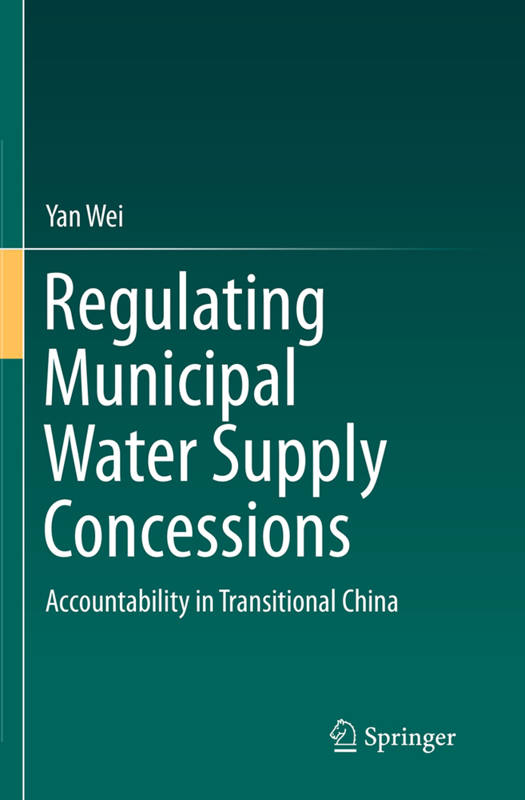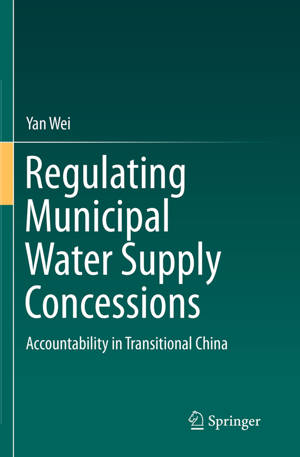
- Afhalen na 1 uur in een winkel met voorraad
- Gratis thuislevering in België vanaf € 30
- Ruim aanbod met 7 miljoen producten
- Afhalen na 1 uur in een winkel met voorraad
- Gratis thuislevering in België vanaf € 30
- Ruim aanbod met 7 miljoen producten
Zoeken
Regulating Municipal Water Supply Concessions
Accountability in Transitional China
Yan Wei
Paperback | Engels
€ 83,95
+ 167 punten
Uitvoering
Omschrijving
This book discusses the recently introduced concession policy, which is also known as PPP worldwide, on municipal utilities policy in China. In this context, critics have claimed that there is a gap in accountability with regard to concessions. The author utilizes interdisciplinary methods and comparative studies, taking into account the situation in the EU and US to analyze the accountability gap some feel will be created when the policy is implemented. Taking water sector concessions as the subject of discussion, the author distinguishes between three types of accountability: traditional bureaucratic accountability, legal accountability and public accountability. By systematically analyzing the essential problems involved, the book attempts to achieve a better understanding of concession and its application in the context of public utilities and finds that the alleged accountability gap is attributed to traditional bureaucratic accountability in China and the concession system per se.
Alleen bij Standaard Boekhandel
+ 167 punten op je klantenkaart van Standaard Boekhandel
Beoordelingen
We publiceren alleen reviews die voldoen aan de voorwaarden voor reviews. Bekijk onze voorwaarden voor reviews.












